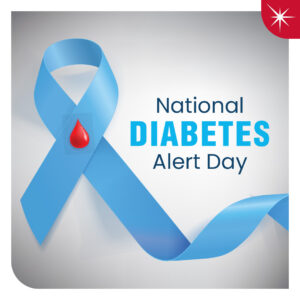Every year, millions of Americans receive prescriptions for chronic headaches and back pain, or after surgery, sports injuries, and accidents. Many are prescribed potent opioids such as hydrocodone, oxycodone, morphine, and methadone. These opioids can cause side effects and lead to addiction.
What are the side effects of long-term opioid use?
Studies suggest that opioids don’t control pain well over the long term and produce side effects like:
- Tolerance. The longer you take the medication, the less effective it is. You could become more sensitive to pain, too.
- Physical dependence. Those who take opioids suffer withdrawal symptoms when they stop.
- Addiction. 1 in 4 people who take opioids long-term struggle with addiction. This can lead to substance use disorders, overdose, brain damage, and even death.
Who is at risk for addiction?
- People with depression or anxiety
- People with sleep apnea
- People aged 65 or older
- People with a history of substance use disorder
- People who combine opioids with alcohol or other medications
Your Quartz health plan covers treatments for substance use disorders. This includes:
- Prescriptions
- Counseling
- Outpatient individual and group therapy
- Higher levels of care, such as residential or day treatment, with prior authorization
Please call Quartz Behavioral Health at (800) 683-2300 for assistance in locating in-network providers who can help you.
You can also talk with your pharmacist about getting naloxone, which can reverse an overdose; you don’t need a prescription. For more information,
visit drugabuse.gov.
You have options to manage pain
While your Quartz health plan covers pain medications, other treatments can help manage your pain with less long-term risk.
Talk to your doctor about different ways to manage pain. Some great alternatives include:
- Exercise
- Physical therapy
- Occupational therapy
- Cognitive-behavioral therapy
- Massage therapy
- Chiropractic services
- Acupuncture services
There may be limits on some of these services. Please see your Explanation of Coverage (EOC) or call Quartz Customer Success for more details.
Finding alternatives
Your plan covers many alternatives to opioid pain medications. You can find these other options in our list of covered drugs.
Be sure to look in the sections labeled:
- Analgesics
- Anesthetics
- Anticonvulsants
- Antidepressants
- Skeletal muscle relaxants
Examples of non-opioid medications include:
- Celecoxib capsules
- Diclofenac tablets
- Etodolac tablets
- Meloxicam tablets
- Nabumetone tablets
- Piroxicam capsules
- Diclofenac 1% gel
- Lidocaine 5% patches
How to safely store and dispose of drugs
Too often, unused prescription drugs find their way into the wrong hands. People who abuse opioids often get them from friends or family. According to
NBC News, more than 12,000 children are poisoned by opioids each year.
How to store opioids
Opioid medications should be stored in a childproof container or lockbox, out of sight and reach of children and guests.
How to dispose of leftover or expired drugs
“Take Back” Programs
Most states have “take back” programs or collection boxes located at pharmacies or police stations. Talk to your pharmacist or visit hhs.gov/opioids/
prevention/safely-dispose-drugs to find a drop-off site near you.
Tossing unwanted drugs
- If there are no programs in your area, you may dispose of medications by following these steps:
- Remove drugs from original containers.
- Mix the drugs with coffee grounds or cat litter to make them less appealing.
- Place the mixture in a sealed bag or empty can.
Note: Quartz does not provide pharmacy benefits for the State of Wisconsin Group Health Insurance Program. Visit Navitus at navitus.com for information about your prescription drug benefits.




